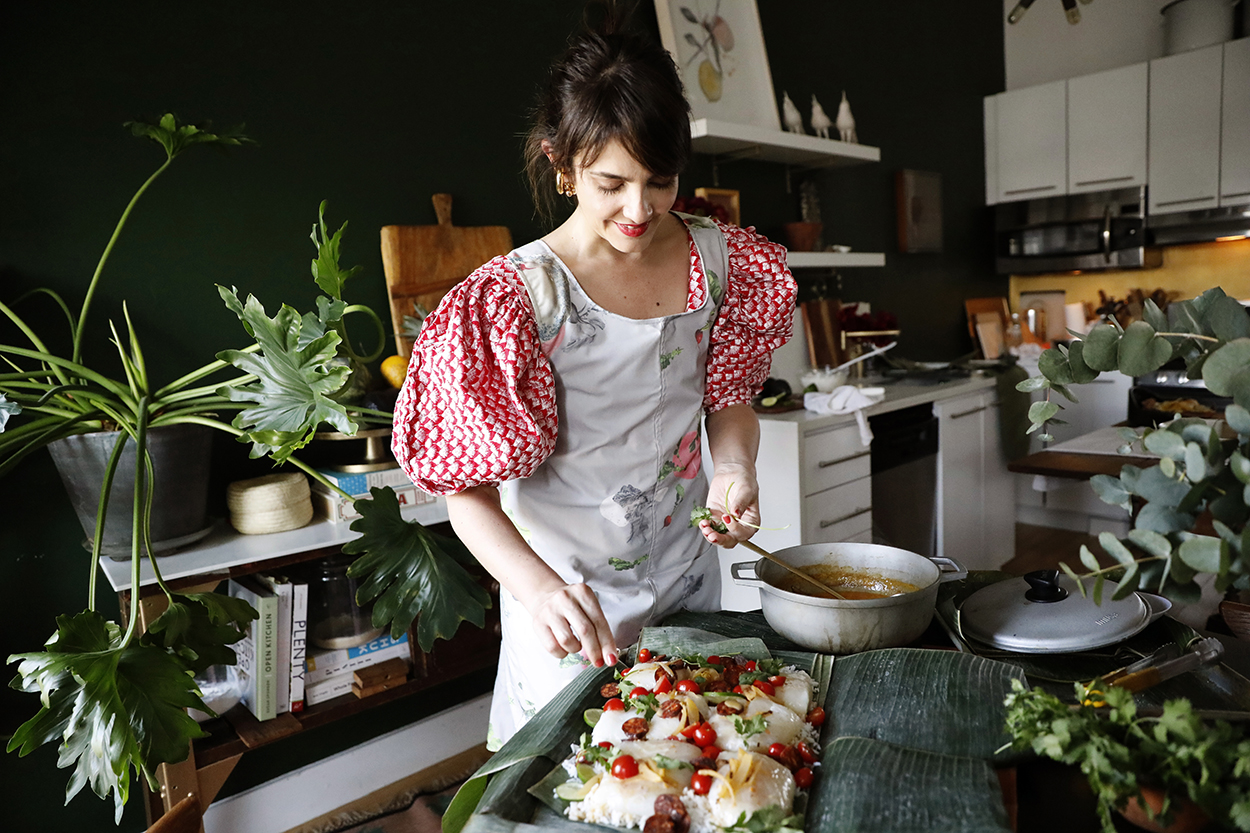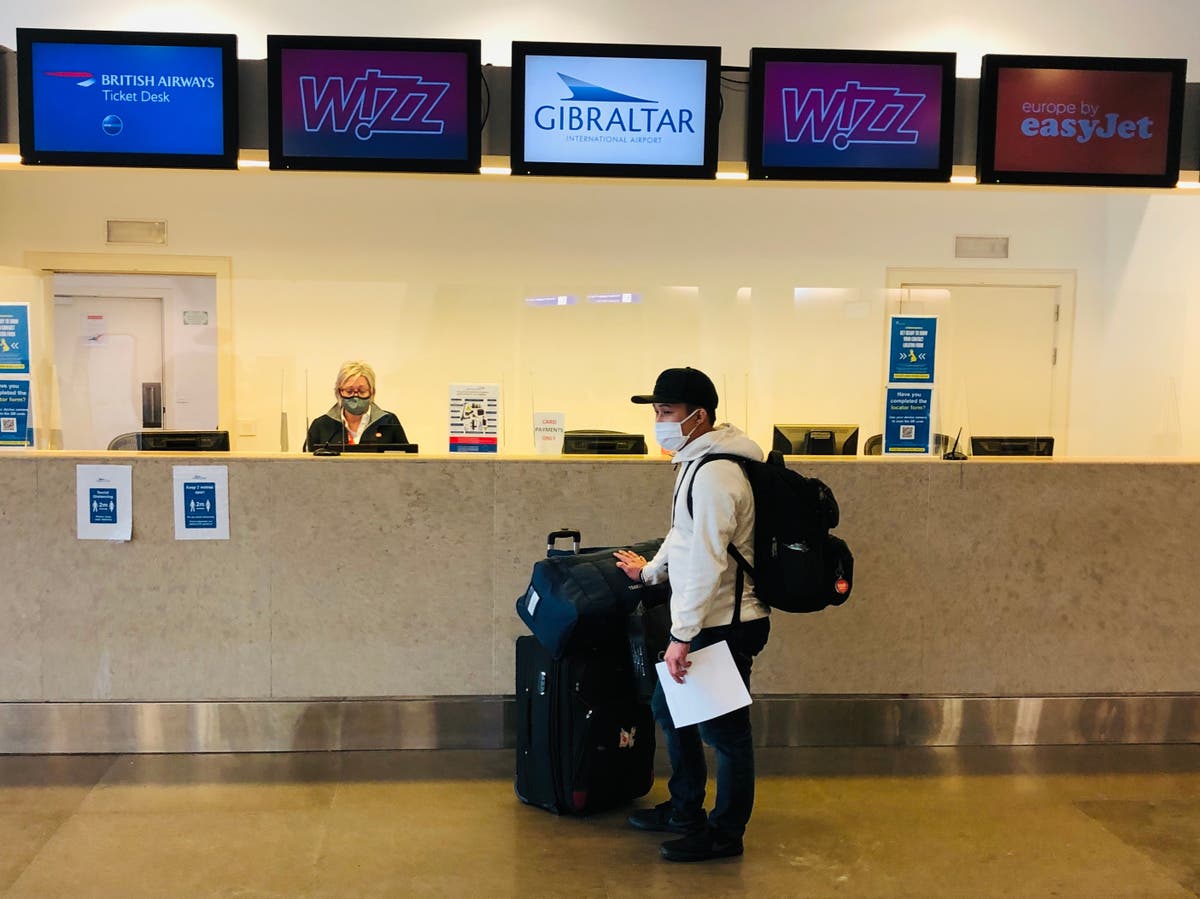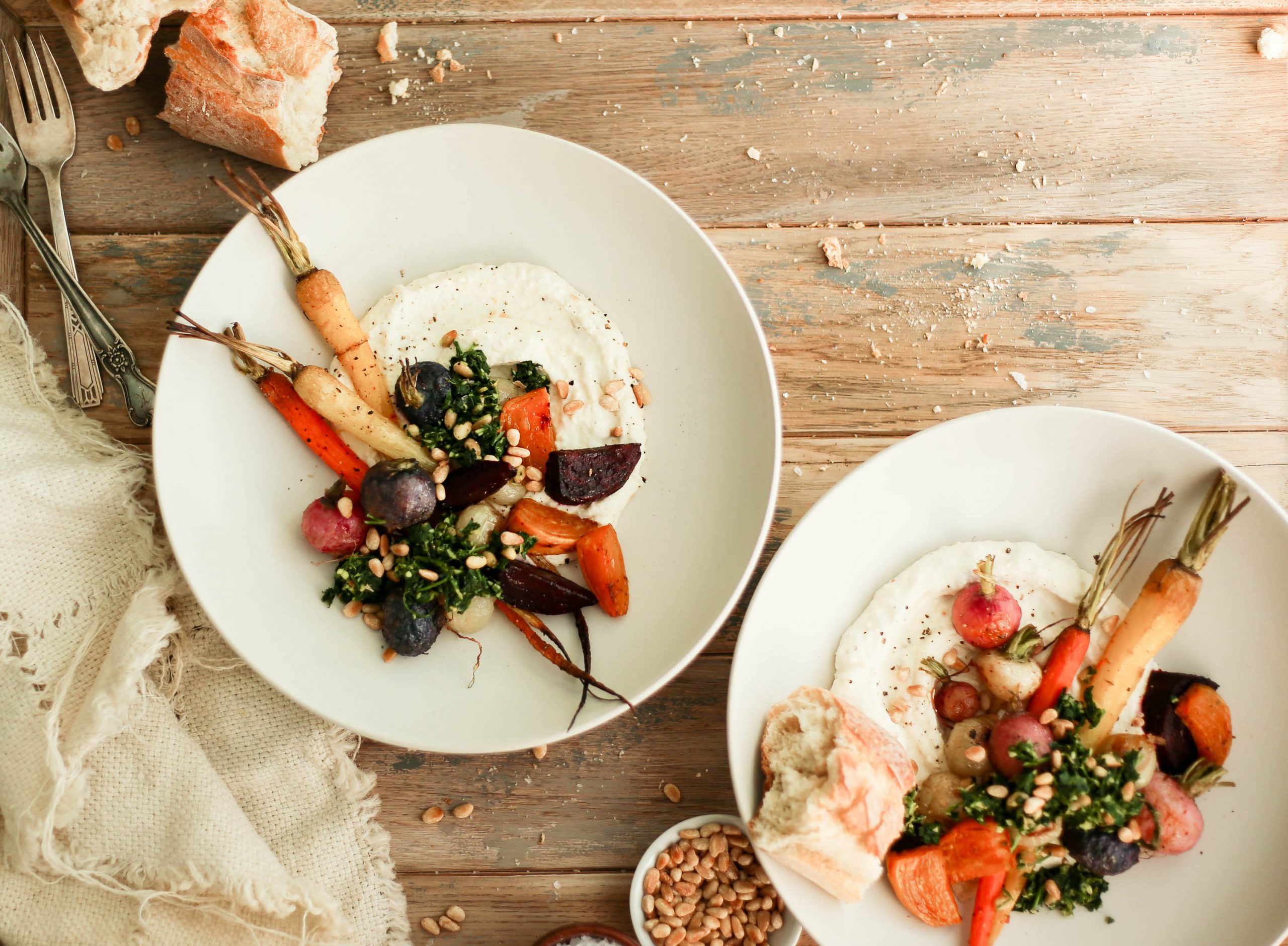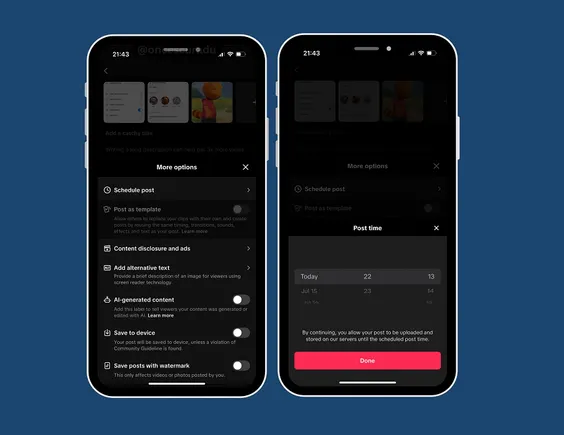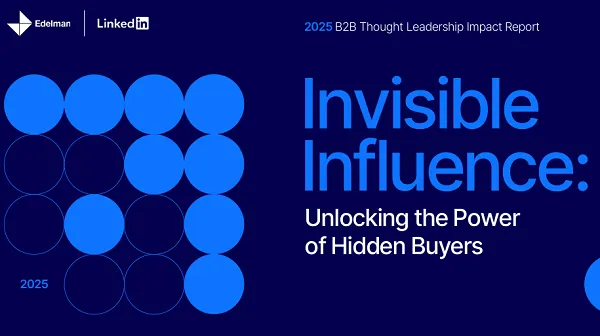Despite a cafe closure, this M’sian honey brand’s ambitions live on with its 10 other stores
Jungle House is a Malaysian business that specialises in honey related prouducts. They started with 6 flavours and now have over 20 flavours.
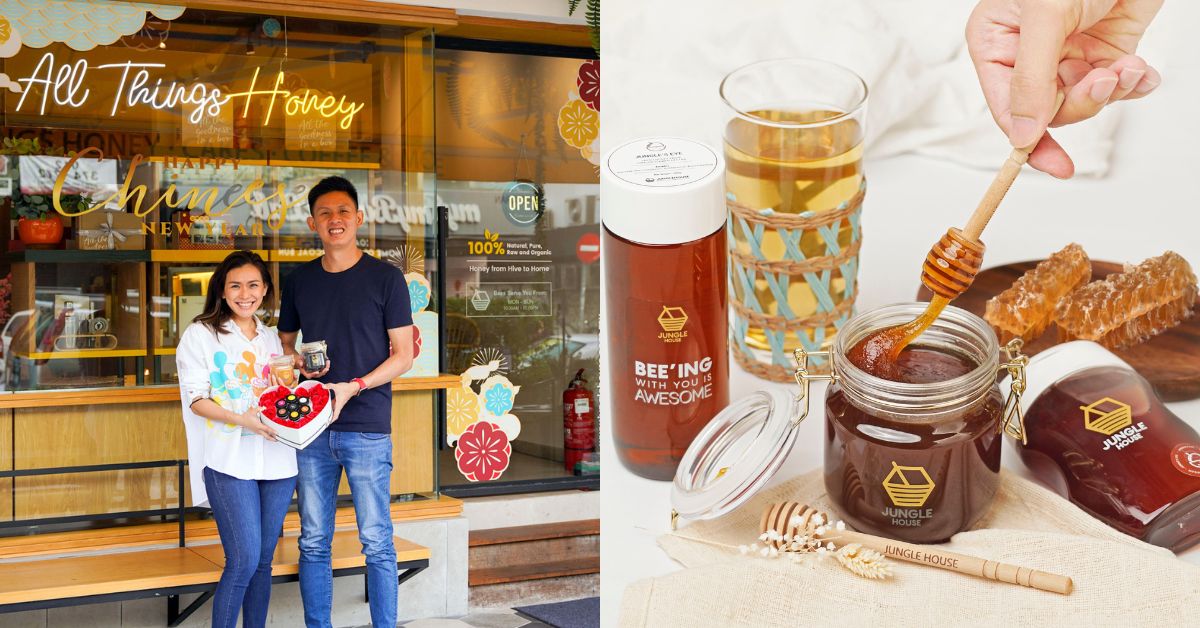
When Paul Poh and Ashley Lam decided to launch Jungle House in 2018, their mission was simple but powerful: to promote a healthier lifestyle through honey.
As a husband-and-wife team, they set out to discover unique honey varieties around the world, and they found their hidden gems close to home—in Indonesia’s mono-floral farms.
It’s where bees gather nectar exclusively from specific flowers, resulting in unique honey types like strawberry honey and mango honey, each carrying its own flavour and benefits.
Their passion for honey has guided Jungle House from a humble mall outlet in Penang to a recognisable brand with 10 retail stores across Malaysia with an all-things honey concept.
But the road to success hasn’t been without its challenges—and lessons learnt along the way.
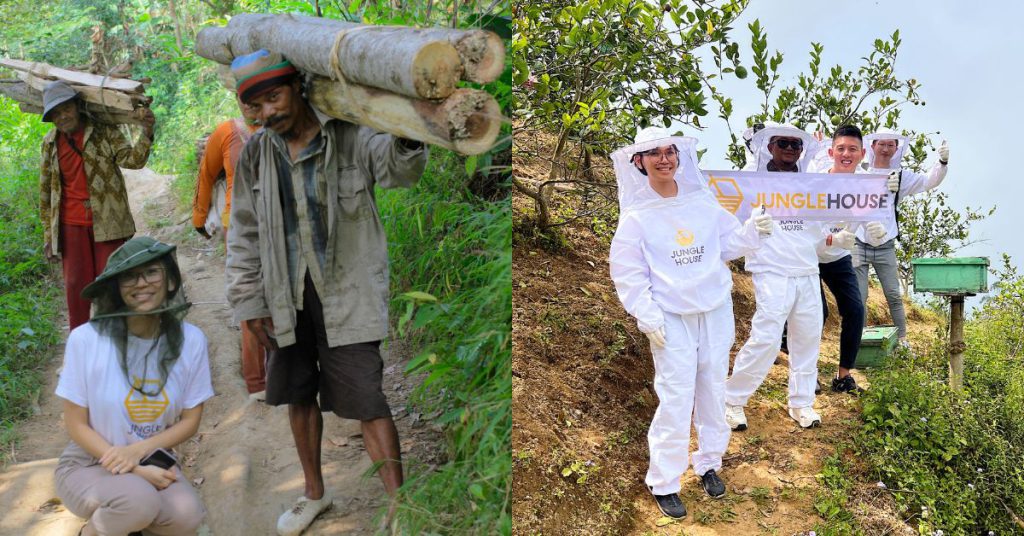 Image Credit: Jungle House
Image Credit: Jungle House Expanding through challenges
Paul, with a background in engineering and a previous startup in the renewable energy sector, and Ashley, a honey industry veteran, used their collective experiences to grow the business.
When they opened their first store in Queensbay Mall, they faced the difficulties that come with being a local brand.
“It wasn’t easy because when we are a local brand, most malls won’t give us the opportunity even when they have empty lots.”
“However, the lot we were offered belonged to a private owner, so we were able to launch our first store in the mall,” they told Vulcan Post.
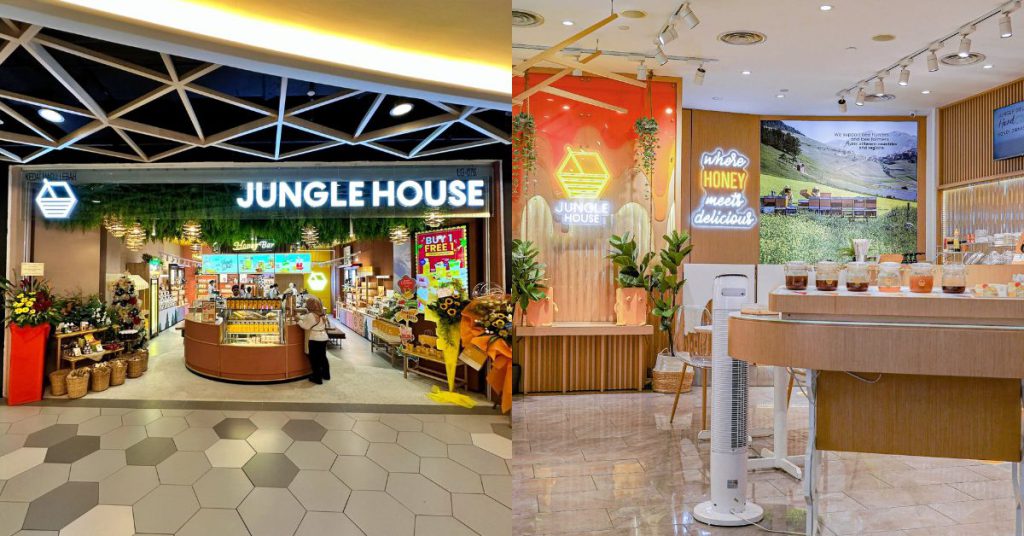 Mid Valley Megamall and 1 Utama outlet / Image Credit: Jungle House
Mid Valley Megamall and 1 Utama outlet / Image Credit: Jungle HouseOnce they established themselves, more opportunities came. Jungle House spread its wings into shopping malls across the Klang Valley, tapping into a growing market for health-conscious products.
But the real test came when they ventured into opening a honey-themed cafe in the heart of Bangsar during the pandemic.
Sweet but bittersweet
When the first Movement Control Order (MCO) ended in 2021, the team saw an opportunity—a vacant lot in Bangsar, a prime area for lifestyle cafes. They decided to take the plunge, opening their first concept cafe serving honey-infused meals like honey-roasted chicken and honey croffles.
However, this sweet dream soon faced harsh realities. Parking was a nightmare for customers, and the location, while glamorous, didn’t generate the consistent foot traffic they had hoped for.
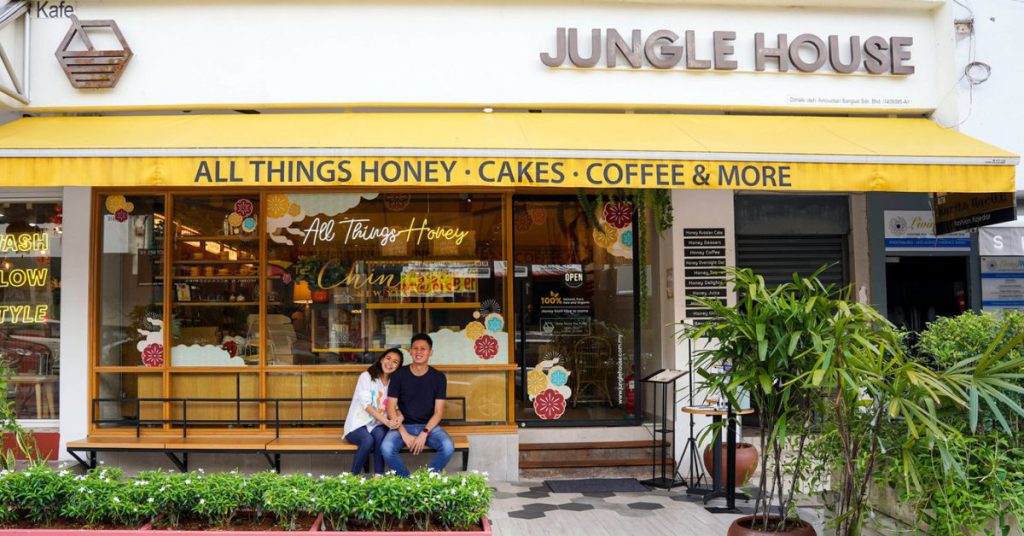 Jungle House Cafe in Bangsar / Image Credit: Jungle House
Jungle House Cafe in Bangsar / Image Credit: Jungle House “Because of the location, the business was only good during weekends,” said the founders.
The pandemic also threw a wrench in their plans. While delivery options helped keep the cafe afloat, it was clear that the business model wasn’t sustainable at that location.
In the end, they made the tough decision to close the cafe when the lease expired. But Paul and Ashley didn’t view this closure as a failure; instead, it was a valuable learning experience.
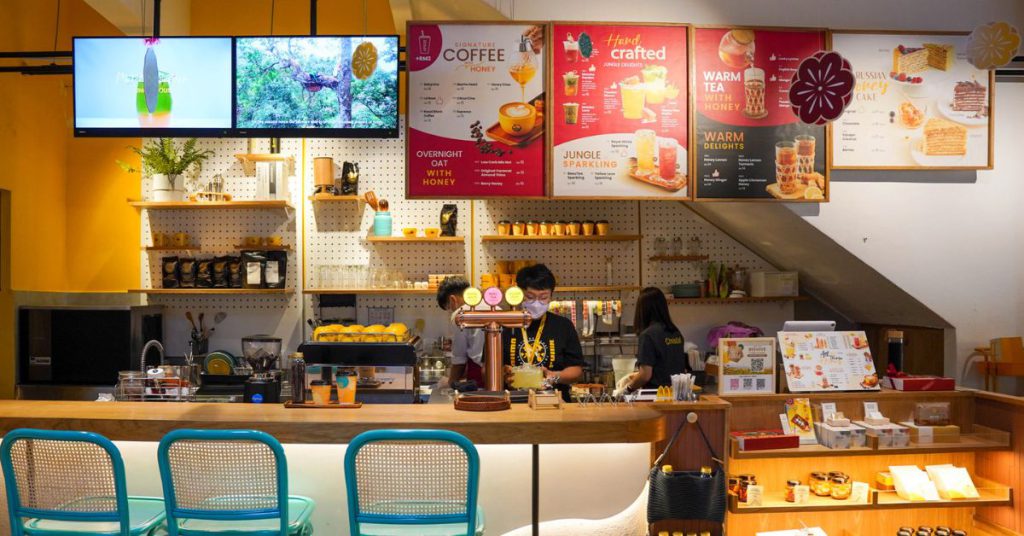 Image Credit: Jungle House
Image Credit: Jungle House Location is everything—an insight Jungle House learnt the hard way.
“We didn’t do our studies enough about the location when we thought of the concept. We just thought we were a lifestyle cafe; it should be well-fitted into the highly sought-after Bangsar area,” Paul and Ashley shared.
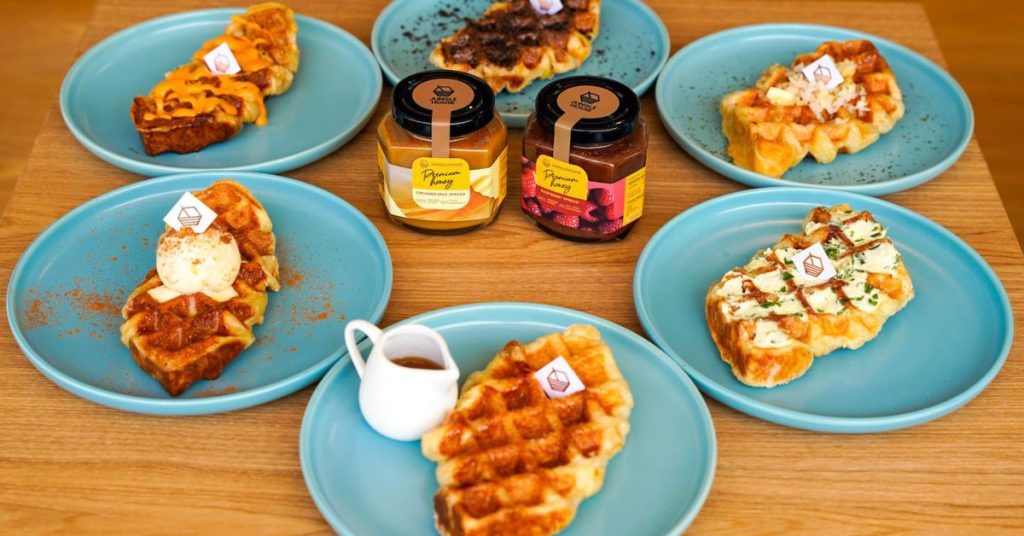 Image Credit: Jungle House
Image Credit: Jungle House Despite the closure of the Bangsar cafe, they didn’t lose sight of their long-term goals. They focused on studying potential locations more thoroughly, understanding not just the market but also customer accessibility, parking, and ease of visibility.
Their latest store in Mid Valley Megamall is a shining example of how those lessons paid off. Situated in a prime location within the mall, it has become their biggest and most successful retail store to date.
“However, we are actively searching for a new location to revive our honey cafe, and we hope to open one very soon to serve everyone again,” they said with hope.
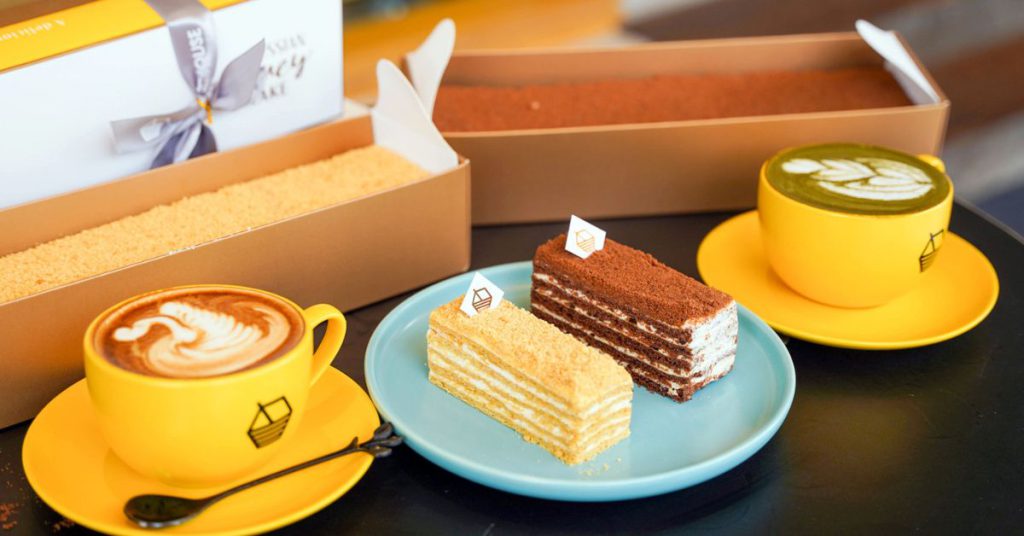 Image Credit: Jungle House
Image Credit: Jungle House “For now, we still focus on opening stores in shopping malls, where we are more familiar with the business game.”
Embracing ecommerce and innovation
Well, it was not only the cafe closure they had to deal with. Like many businesses, Jungle House had to adapt quickly during the pandemic.
“MCO was the toughest for us. At that point in time, we rely on a single channel, which is retail. But during MCO, malls are the first to be locked down,” the duo said.
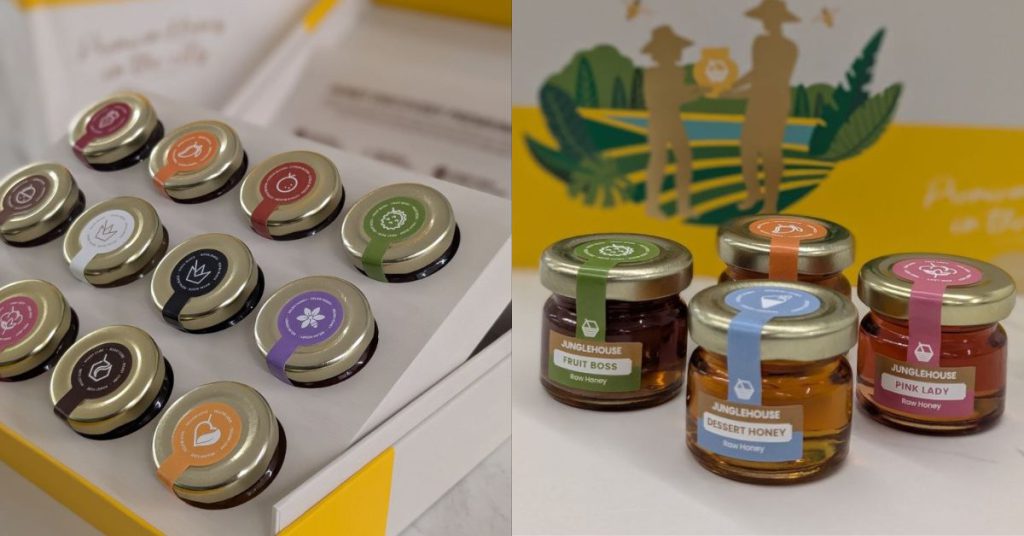 12 mini jars of signature honey / Image Credit: Vulcan Post
12 mini jars of signature honey / Image Credit: Vulcan PostWith malls closed and foot traffic reduced, they turned to ecommerce. While online sales have grown, it’s still a work in progress.
One challenge with selling honey online is that customers often want to taste the product before making a purchase.
Paul and Ashley are exploring solutions, such as offering sample sachets to give potential customers a taste of what Jungle House has to offer.
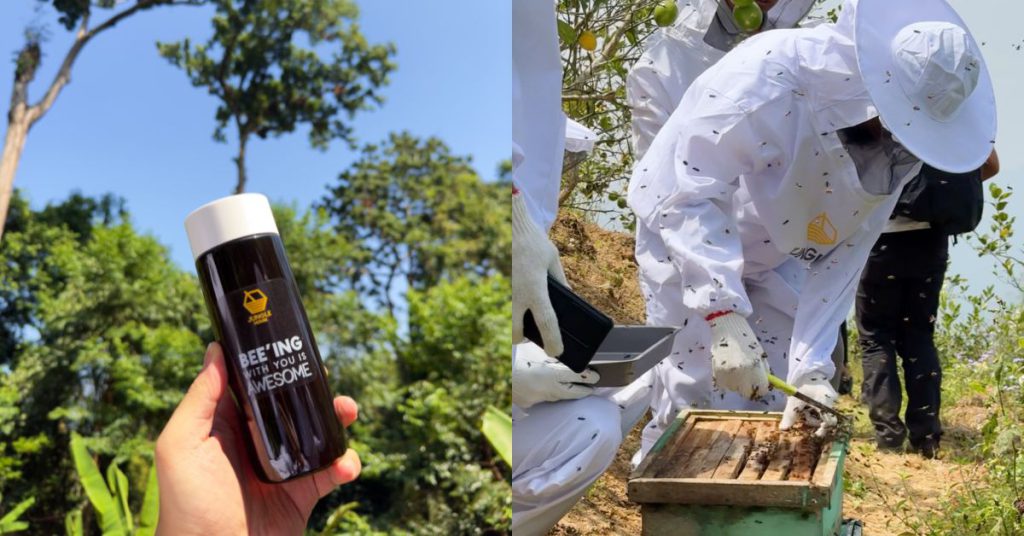 Image Credit: Jungle House
Image Credit: Jungle House They’re also constantly developing new products, from honey-infused cakes to unique honey gift sets. This spirit of innovation keeps them relevant in a competitive market and ensures they stay true to their mission of making honey a lifestyle choice, not just a medicinal remedy.
Jungle House is now at a crossroads, where they’re looking beyond retail expansion.
Paul and Ashley are taking a more strategic approach by building a manufacturing facility that complies with halal, HACCP, and GMP standards.
“With the Malay market and also the overseas market available, we believe that it will give us a broader reach of our target audience and open up the awareness about the brand better,” they noted.
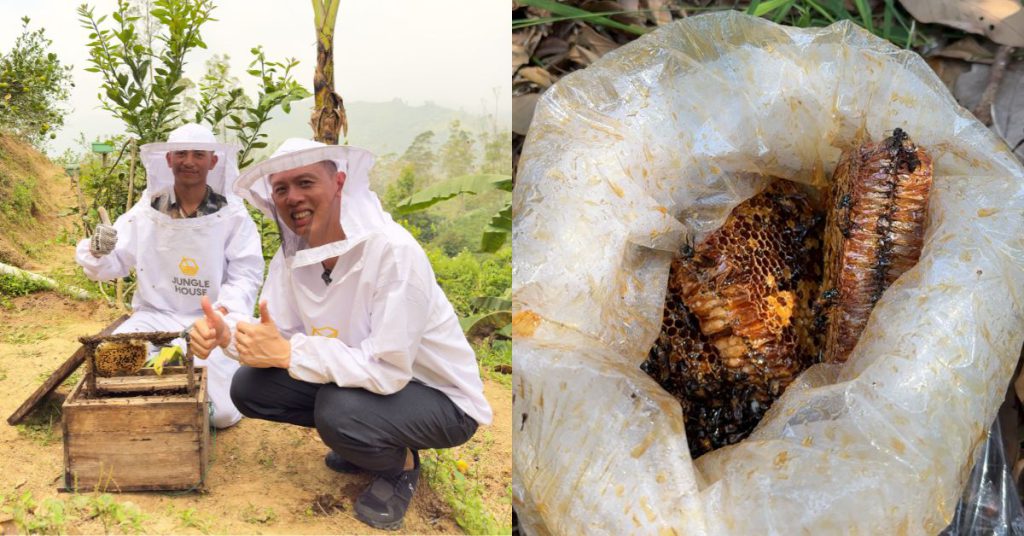 Image Credit: Jungle House
Image Credit: Jungle House Saving bees, saving the world
At Jungle House, selling honey is about more than just business. They are passionate advocates for sustainability.
While many may still view honey as a remedy for sore throats or a sweetener for tea, Jungle House is on a mission to change that perception. Honey, they believe, is a superfood rich in health benefits and should be consumed daily as part of a healthy lifestyle.
Through their “Save the Bees, Save the World” campaign, they hope to raise awareness about the importance of bees and their contribution to food security and biodiversity.
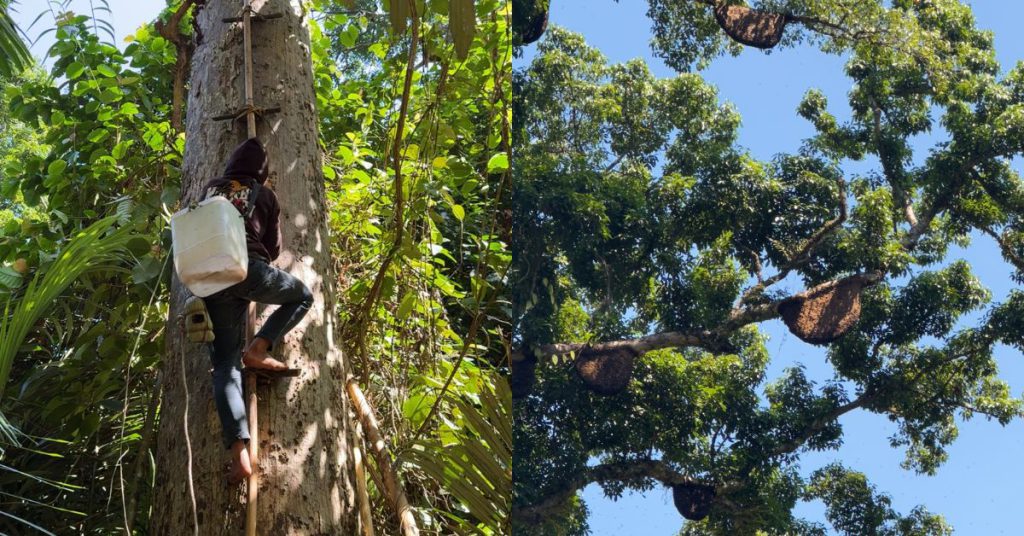 Image Credit: Jungle House
Image Credit: Jungle House “Every time a customer walks into our store, we spend 20 to 30 minutes sharing the story of honey: how it’s harvested, the different varieties, their unique benefits, and the crucial role honey plays in our ecosystem,” they said.
This educational approach has helped create a community of honey lovers who are as passionate about sustainability as the founders themselves.
Paul and Ashley know that building a brand in a niche market like honey takes time, patience, and persistence. While no blueprint for success exists in the raw, organic honey business, they remain committed to the long haul.
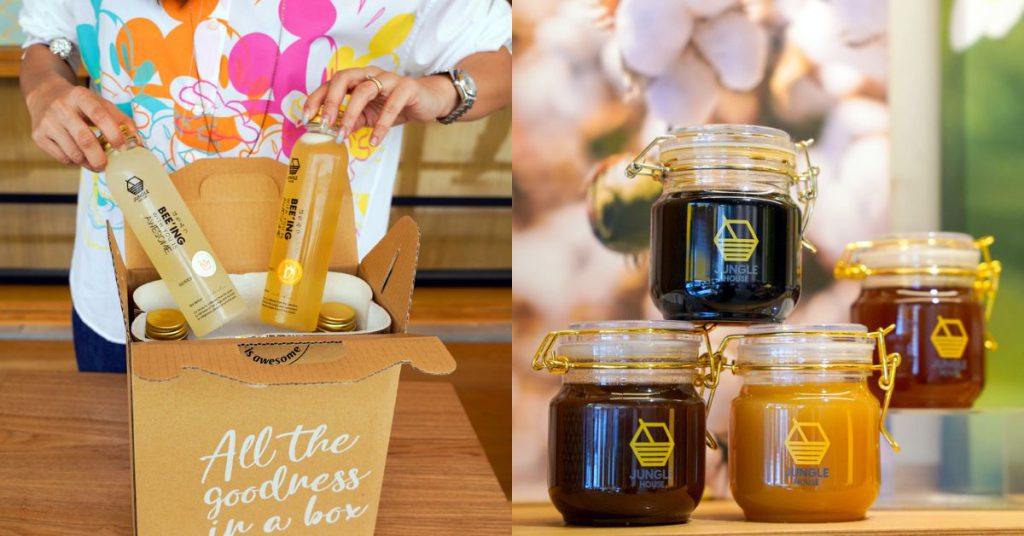 Image Credit: Jungle House
Image Credit: Jungle House For them, each setback is seen as a stepping stone, not a failure. The closure of the Bangsar cafe? A lesson learnt. The pandemic’s impact on retail sales? A reason to explore ecommerce and new product offerings.
Their long-term vision includes not only expanding their retail presence but also ensuring that their supply chain—from farmers to consumers—grows sustainably. By nurturing the land and the people who work with it, Jungle House is setting itself up for growth that’s in harmony with nature.
You can learn more about Jungle House here. Read other articles we’ve written about Malaysian startups here.Featured Image Credit: Jungle House

 Aliver
Aliver 








